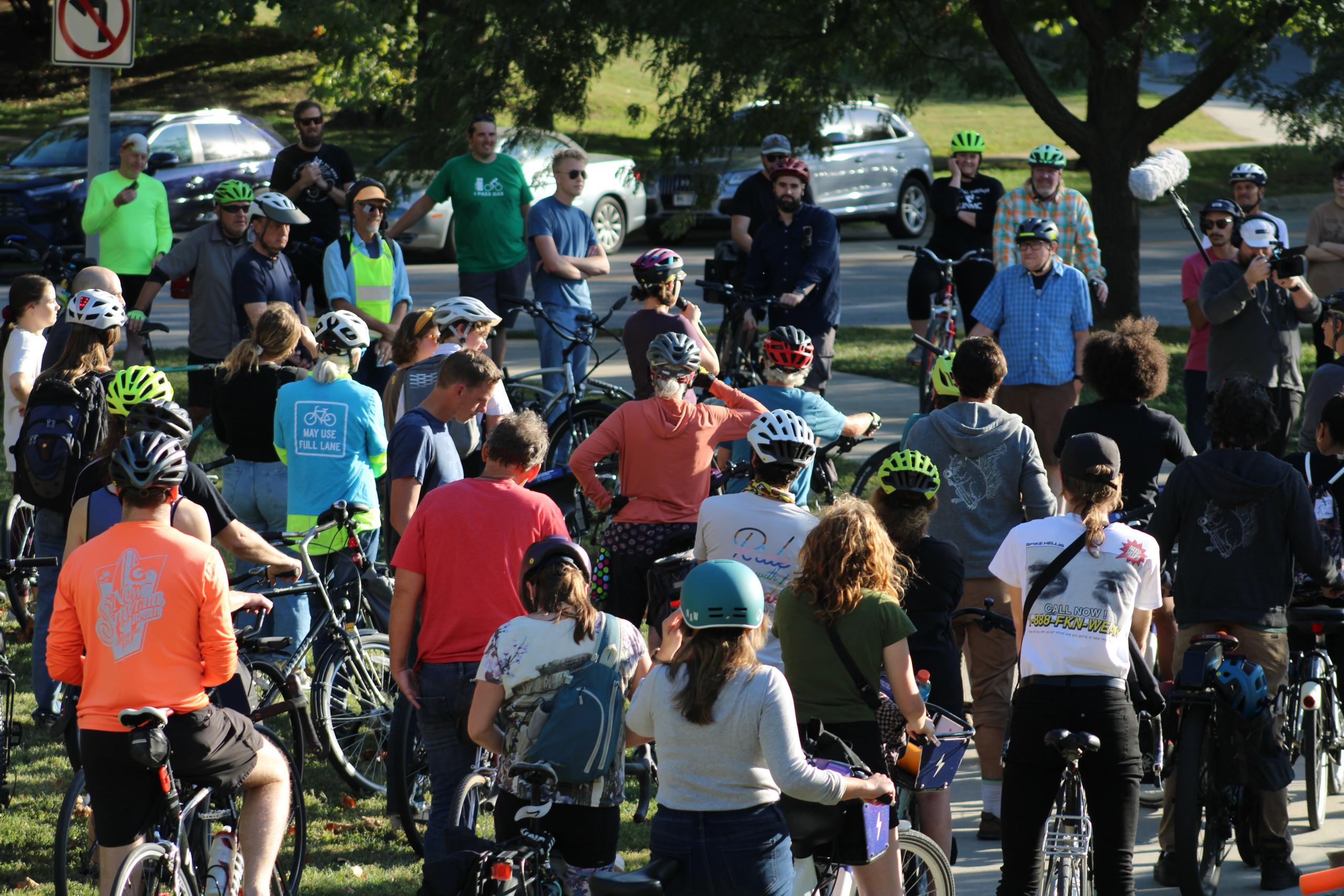By, MSO Board Member Kimara Snipes
To be honest with you, I was today years old when I learned that there was a “Transit Equity Day.” As the Diversity, Equity and Inclusion chair and a trained facilitator for the Anti-Defamation League, anytime I hear the word “equity” I’m instantly intrigued, so this day now has my attention.
I am a 46-year old Black woman from Omaha, Nebraska. During the daytime my work is focused on working with nonprofits across the state to increase voting and build an engaged Nebraska. I fight to make sure that the voices of the underrepresented are represented in the policy decisions that affect their lives. I also create programming for youth for one of the local public library systems. I serve on the Mode Shift board and several others (I really, REALLY need to stop) and I have also served as an elected official. People are always shocked when I tell them that I have done all of this while also being a public transit user. I’ve never purchased a car.
While I have a high appreciation for public transit, it is certainly by chance and not by choice that I ended up being a regular rider. In 2014, I suffered a virus very similar to COVID. I suffered heart and kidney failure, was put on an ECMO machine and dialysis while also being placed into a medically induced coma. I spent a month in the hospital while the rest of the world could have cared less about my virus (did I mention I lost my sense of smell and taste for a year?). All of this occurred while I was laid off of work too. Yup, I was basically up the creek without a paddle.
Since that time it has been a struggle financially. Because of those struggles I have depended on public transit for quite some time. I recognize though, that it’s not just me. About a year and a half after being released from the hospital I finally went back to work full time for an American Jobs Center (AJC) located in Omaha, NE. The AJC was created by the Obama Administration, established to help people find jobs and training and assist with other needs through that process.
I was excited to be back to work and fully healed. I was also excited to just be able to help people. And what’s the best way to help a community? Especially a community that faces poverty, crime, homelessness, mental health issues and more? Jobs!
Then the real world set in. I can recall Facebook preparing to build data centers. They hired a construction company that I consulted with through the local American Jobs Center to hire workers. This organization wanted to hire from marginalized communities. They wanted to put people in North and South Omaha to work. I was down for the cause! “Let’s make like Nike and just do it!” was my thought process.
Then I had to try to get people from North and South Omaha to Highway 350 & Highway 370. Clear out in the cornfields of Sarpy County. How in the hell was I supposed to get people to work way out there? As a matter of fact, as time went on, how was I supposed to get anyone I was working with to the “abundance of jobs” that were available all the way out in B.F.E. (if you don’t know what that is an acronym for, I suggest you ask one of your really good comedic friends and don’t judge me once you find out). How is that equitable?
Transit Equity Day falls on Rosa Parks birthday, so we clearly see that the conversation around equity in transit is nothing new. I would never compare my experiences or trials with public transportation to anything that Rosa Parks went through, especially on that cold winter day in 1955 when she changed the future of public transportation for Black people (I still refuse to sit in the back of any bus and I don’t see that changing).
Martin Luther King said that public transit was a “genuine civil rights issue.” He understood what became very clear to me during my time in workforce development: that our transportation systems were not back then, and still are not today, doing enough to make sure that we ALL have access to safe, reliable and affordable transportation regardless of what part of the extremely segregated city we live in.
As someone who works in the space of supporting people’s rights during a time when democracy seems to be wavering, I along with many, often get lost focusing on just our right to vote. But, my right to ride anywhere I want to on the bus is just as much of a civil right to focus on as any.
“But, my right to ride anywhere I want to on the bus is just as much of a civil right to focus on as any.”
It’s not just poor people who benefit from public transportation. And it’s not just people in the city who need it either.
People need to be educated on the fact that all communities have a need for access to public transit and options for multiple modes of transportation. People deserve to be able to connect to their friends, their families, their doctors, their churches and wherever it is they choose to relax and have fun. People deserve to have their neighborhoods connected to multiple modes of transportation as they look to connect with the rest of the city. People deserve to be able to get to work in EVERY part of Omaha and the surrounding areas and communities.
So, as we focus on this year’s theme of educating, agitating and organizing, I say let’s not just TALK about it, but let’s BE about it. I’m willing to do my part, let’s hope our decision makers are too.


